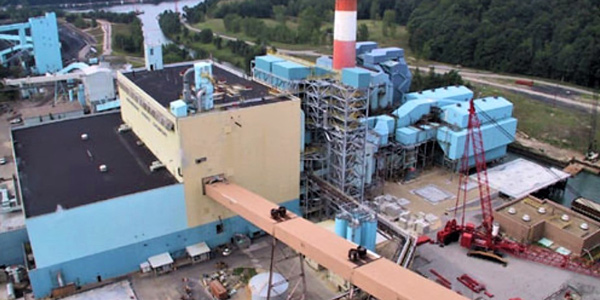By Amanda Durish Cook
A solar developer is attempting to block a Michigan utility giant’s effort to halt its energy purchases under the Public Utilities Regulatory Policy Act (PURPA) for the next 10 years.
The conflict pits Cypress Creek Renewables against Consumers Energy, which supplies electricity to more than half of Michigan.
Consumers Energy in December asked the Michigan Public Service Commission (PSC) for permission to decline purchasing capacity from PURPA-eligible facilities, contending that it will not need any new generation over the next decade (U-18491). The company also requested that the PSC reset the value of Consumers’ avoided capacity cost to match MISO’s Planning Resource Auction price for all new PURPA-qualifying facilities’ offers to sell capacity. PURPA requires utilities such as Consumers Energy to purchase electricity from qualifying facilities at avoided-cost rates that reflect a utility’s own cost to build new generation.
In its filing, Consumers pointed to a 2017 case in which the Michigan commission ruled that the PURPA purchase obligation does not exist “if no additional capacity need is forecasted.” The company included a 10-year capacity proposition with its application.
But Cypress Creek this month filed in opposition to the plan, arguing that Consumers did not satisfy the grounds for a stay of PURPA obligations because the company could not prove it would be damaged in the absence of the waiver. The renewables developer also said a PURPA stay for Consumers would harm the public interest by hindering small solar development. Under PURPA’s implementation in Michigan, projects 2 MW and smaller are guaranteed a 20-year, fixed-price contract.
Cypress Creek’s complaint also contends that Consumers has itself admitted that it will need an additional 625 MW of renewable energy capacity to comply with Michigan’s 15% renewable portfolio standard.
Cypress Creek is joined in its arguments by the Environmental Law and Policy Center, which objected that Consumers’ 10-year capacity assumption “rests on faulty assumptions ― including an inadequate analysis of coal-plant retirements.” The environmental non-profit said Consumers failed to conduct a cost-benefit analysis on retirement of existing coal units, simply assuming that two units apiece at its Karn and J.H. Campbell plants will stay online through 2030. Consumers retired seven of its oldest coal plants in 2016, representing about 30% of its generating capacity.
$3 Billion, 700 MW
Cypress Creek said it has more at stake than Consumers in the debate over PURPA.
“The harm to Cypress Creek and other interested parties from granting a stay exceeds any harm to Consumers if a stay is not granted,” Cypress Creek said. The company said it is ready to invest $3 billion in low-cost, solar energy in Michigan through its affiliates, which already have approximately 700 MW of solar capacity under development in Consumers’ service area.
“These projects will be out on indefinite hold if Consumers’ request for a stay is granted,” the company said.
The company also alleged that Consumers’ timing of its application was opportunistic because the utility didn’t file for the waiver until after the Michigan PSC had set new avoided costs to file its application.
The PSC in November approved Consumers’ avoided cost rate at $117,203/megawatt year or $140,505/MISO zonal resource credit year (U-18090) but put the ruling on hold on Dec. 20, anticipating petitions for rehearing. A day later, Consumers filed its request for a stay.
“Consumers waited until after the Commission set new avoided cost rates to now claim that it does not have a capacity need,” Cypress Creek said.
Consumers maintains that PURPA will require it to purchase an additional 300 MW per year from qualifying facilities, burdening its customers “with up to $519 million of added expense over the next 20 years for a commodity that is unnecessary to serve their demand.”
Cypress Creek has found itself in a similar row over challenges to PURPA rates in Montana. The company has filed suit in both state and federal courts over the Montana PSC’s 2016 decision to first suspend, then slash PURPA rates and contract lengths offered to small solar producers. (See Montana PSC Racks up 2nd Lawsuit over PURPA Rates.)





